August 30, 2018 •
Manitoba Electoral Divisions Boundaries Changes Proposed
Starting on September 10, the Manitoba Electoral Divisions Boundaries Commission begins public hearings regarding proposed changes to all 57 existing electoral divisions in the province. The hearings will be held from September 10 to September 20 in 11 cities. The […]
 Starting on September 10, the Manitoba Electoral Divisions Boundaries Commission begins public hearings regarding proposed changes to all 57 existing electoral divisions in the province. The hearings will be held from September 10 to September 20 in 11 cities.
Starting on September 10, the Manitoba Electoral Divisions Boundaries Commission begins public hearings regarding proposed changes to all 57 existing electoral divisions in the province. The hearings will be held from September 10 to September 20 in 11 cities.
The Commission is inviting feedback from the public concerning the proposed electoral division boundaries and names. Sixteen new names have been proposed by the Commission, including six inside of and 10 outside of Winnipeg. The proposed electoral division boundaries and names, along with their respective populations, are available to view on the Commission’s website.
The last review of the province’s electoral divisions boundaries was in 2008. After the hearings, the Commission’s final report is expected to become law and go into effect before the next provincial general election in October 2020.
August 30, 2018 •
Alabama Commission Considers Revisions to Ethics
The Alabama Code of Ethics Clarification and Reform Commission (Commission), a joint committee of the Alabama Legislature, met on August 28, 2018, to examine potential revisions to the ethics laws. The meeting was timely as the Alabama Court of Criminal […]
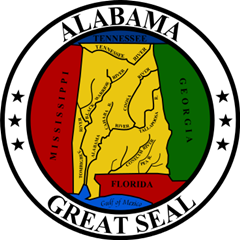 The Alabama Code of Ethics Clarification and Reform Commission (Commission), a joint committee of the Alabama Legislature, met on August 28, 2018, to examine potential revisions to the ethics laws.
The Alabama Code of Ethics Clarification and Reform Commission (Commission), a joint committee of the Alabama Legislature, met on August 28, 2018, to examine potential revisions to the ethics laws.
The meeting was timely as the Alabama Court of Criminal Appeals upheld former House Speaker Mike Hubbard’s conviction on 12 felony ethics charges the day before and requested the Legislature clarify provisions of the ethics law. The Commission is considering recommending altering the definition of principal to include a person with the authority to fire or direct the lobbyist.
Other changes discussed included a tiered penalty system for violations of the law and provisions allowing public officials to maintain certain business relationships during their time as a public official.
The Commission is scheduled to meet again on September 20, 2018.
August 29, 2018 •
Denver City Council Approves Public Campaign Financing Initiative for November Ballot
The Denver City Council approved a ballot initiative proposing the creation of a dedicated fund to match campaign donations of up to $50 per donor to candidates participating in the program. The measure also requires public disclosure of all campaign […]
 The Denver City Council approved a ballot initiative proposing the creation of a dedicated fund to match campaign donations of up to $50 per donor to candidates participating in the program.
The Denver City Council approved a ballot initiative proposing the creation of a dedicated fund to match campaign donations of up to $50 per donor to candidates participating in the program.
The measure also requires public disclosure of all campaign spending, lowers contribution limits, and eliminates campaign contributions from corporations or labor organizations.
The ballot measure will be decided by voters in a special election held concurrently with the general election on November 6. If passed, the ordinance is effective January 1, 2020.
August 27, 2018 •
Tennessee State Senator Resigns
Sen. Bill Ketron submitted his resignation for the 13th District seat on Monday, effective August 31. His resignation is taking effect about two months before his term was set to expire. He is set to become the Rutherford County mayor […]
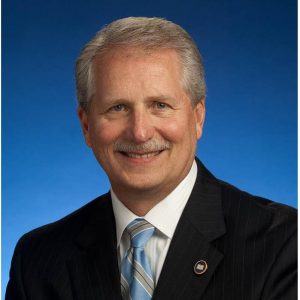 Sen. Bill Ketron submitted his resignation for the 13th District seat on Monday, effective August 31.
Sen. Bill Ketron submitted his resignation for the 13th District seat on Monday, effective August 31.
His resignation is taking effect about two months before his term was set to expire.
He is set to become the Rutherford County mayor on September 1.
August 24, 2018 •
Baltimore Ethics Bill Amended
In April, City Councilman Zeke Cohen introduced an ordinance amending the Baltimore City Ethics Code. Ordinance No. 18-0230 originally required lobbyists to file reports quarterly instead of annually. At a work session for the bill, the reporting period was amended […]
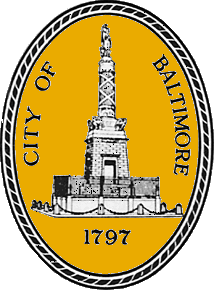 In April, City Councilman Zeke Cohen introduced an ordinance amending the Baltimore City Ethics Code.
In April, City Councilman Zeke Cohen introduced an ordinance amending the Baltimore City Ethics Code.
Ordinance No. 18-0230 originally required lobbyists to file reports quarterly instead of annually.
At a work session for the bill, the reporting period was amended from quarterly to semi-annual reporting.
The bill was also amended to require a working online portal by June 1, 2019.
If passed, the ordinance will become effective 30 days after it is enacted.
August 24, 2018 •
North Carolina Begins Second Special Session
The North Carolina General Assembly was called into special session yesterday to begin today, August 24, in order rewrite ballot amendment language to shift appointment powers from the governor to the Legislature. Speaker Tim Moore said legislators plan to make […]
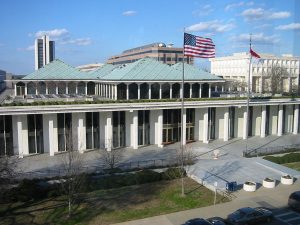 The North Carolina General Assembly was called into special session yesterday to begin today, August 24, in order rewrite ballot amendment language to shift appointment powers from the governor to the Legislature.
The North Carolina General Assembly was called into special session yesterday to begin today, August 24, in order rewrite ballot amendment language to shift appointment powers from the governor to the Legislature.
Speaker Tim Moore said legislators plan to make revisions “because the proposals provide a popular bipartisan balance in our state government that will benefit the people of North Carolina.”
This is the second special session this summer to address the ballot language.
August 24, 2018 •
News You Can Use Digest – August 24, 2018
National: Despite Year-of-the-Woman Buzz, Female Candidates Lag Behind Men in Pulling in Campaign Cash The News-Times – Michelle Ye Hee Lee and Anu Narayanswamy (Washington Post) | Published: 8/16/2018 Even as a record number of women run for office this […]

National:
Despite Year-of-the-Woman Buzz, Female Candidates Lag Behind Men in Pulling in Campaign Cash
The News-Times – Michelle Ye Hee Lee and Anu Narayanswamy (Washington Post) | Published: 8/16/2018
Even as a record number of women run for office this year, female congressional candidates trail their male counterparts when it comes to fundraising. Of candidates who showed viability by raising at least $50,000, men running for the House had collected almost 17 percent more on average than their female counterparts by the end of June. One key factor is many female candidates lack relationships with longtime donors who work in traditionally male-dominated industries such as finance. That is a particular challenge for women this cycle, because the majority are newcomers to politics and, like any non-incumbent, must build donor networks from scratch. But their task is often more difficult, some female candidates said, because of skepticism about their potential, based on their gender.
Federal:
Elizabeth Warren Unveils Plans to Root Out Corruption in Washington, Ensure Federal Government Works for Americans
MassLive.com – Shannon Young | Published: 8/21/2018
U.S. Sen. Elizabeth Warren introduced the Anti-Corruption and Public Integrity Act, which lays out a multi-step approach to ending corruption and increasing public integrity. It calls for permanently banning elected and appointed officials from becoming lobbyists after they leave office, barring presidents and federal lawmakers from owning companies while in office, and ending “legalized lobbyist bribery” by preventing them from writing campaign checks or giving personal gifts to candidates or lawmakers. The bill would also create an independent anti-corruption agency dedicated to enforcing federal ethics laws and requiring elected officials and candidates to disclose more financial and tax information, among other provisions.
Hunter Indictment Could Jeopardize GOP Seat
Politico – John Bresnahan and Rachel Bade | Published: 8/21/2018
U.S. Rep. Duncan Hunter and his wife were indicted on allegations of using more than $250,000 of campaign funds for personal expenses, including family vacations, private school tuition for their children, dental work, and an airline ticket for a pet rabbit. The indictment portrays the Hunters as a couple with serious financial problems. They allegedly overdrew their joint checking account more than 1,100 times during a seven-year period, leading to more than $37,000 in overdraft charges. Hunter’s indictment endangers a traditionally conservative southern California seat long held by Republicans. Hunter cannot take his name off the November ballot and California does not allow write-in candidates.
Michael Cohen Says He Arranged Payments to Women at Trump’s Direction
MSN – William Rashbaum, Maggie Haberman, Ben Protess, and Jim Rutenberg (New York Times) | Published: 8/21/2018
Michael Cohen, President Trump’s former personal lawyer, pleaded guilty to campaign finance violations and other charges, saying Trump directed him to arrange the payment of hush money to adult film actress Stormy Daniels and former Playboy model Karen McDougal to fend off damage to his White House bid. Cohen’s admission marks the first time any Trump associate has gone into open court and implicated Trump himself in a crime. Under federal law, expenditures to protect a candidate’s political fortunes can be construed to be campaign contributions, subject to laws that bar donations from corporations and set limits on how much can be given. Trump denied to reporters in April that he knew anything about Cohen’s payments to Daniels.
From the States and Municipalities:
California: Developer Whose Wife Sat on Ethics Commission Faces $15,000 Fine Over Political Donations
Los Angeles Times – Emily Alpert Reyes and David Zahniser | Published: 8/20/2018
Six years ago, city council President Herb Wesson drew criticism for putting the wife of a campaign fundraiser on the Los Angeles Ethics Commission, a panel that votes on fines for people who violate political contribution rules. Wesson had selected nonprofit executive Erin Pak, who was also the wife of architect and real estate developer Chris Pak, host of fundraising events for Mayor Eric Garcetti and other local politicians. Erin Pak left the commission three years ago. Now, Chris Pak is facing $15,000 in proposed fines from the commission for giving contributions that exceeded the city limit. All but one of the violations took place during the period when Erin Pak was on the commission.
Florida: After a Florida Democrat Said She’d Take Donations from the Marijuana Industry, Wells Fargo Closed Her Bank Account
Washington Post – Christopher Ingraham | Published: 8/20/2018
Nikki Fried, who is running for agriculture commissioner in Florida, said Wells Fargo terminated her campaign’s account because of her links to the medical marijuana businesses. Fried said the action came after the bank questioned her about her campaign platform and donations she had taken, as well as her stance on medical marijuana. Wells Fargo spokesperson Jennifer Dunn said the bank’s policy is to not provide services for businesses related to marijuana businesses. Fried has accepted campaign contributions from lobbyists connected to medical marijuana. If such a policy were applied nationwide it could potentially jeopardize the banking access of dozens of state and national politicians.
Georgia: Georgia Voting Rights Activists Move to Block a Plan to Close Two-Thirds of Polling Places in a Majority Black County
Chicago Tribune – Vanessa Williams (Washington Post) | Published: 8/18/2018
Randolph County in rural Georgia wants to eliminate all but two of the county’s polling locations just months before the midterm elections because they are not in compliance with disabilities laws. Some residents and progressive groups allege the move was aimed at suppressing turnout in the county, in which more than 55 percent of the voters are black and have backed Democratic candidates in statewide elections. Activists noted many residents have low incomes and the county, which covers 431 square miles, has no public transportation system. All nine of the polling places were used for the May primaries and less than a month ago for statewide run-offs.
Kentucky: Loophole Allows Organizations to Pay for Legislators’ Out-of-State Travel Without Disclosing Amounts
Insider Louisville – Joe Sonka | Published: 8/22/2018
Due to a loophole in Kentucky’s ethics law, a large majority of travel expenditures for state lawmakers covered by private organizations are not required to be disclosed by lawmakers to the Legislative Research Commission or the Kentucky Legislative Ethics Commission. John Schaaf, executive director of the ethics panel, said this reporting loophole occurs when those groups pay in advance for legislators’ travel, as “there is no disclosure required of expenses prepaid for transportation, food and lodging.” Events organized by outside groups are sometimes funded by businesses and interests that lobby the Legislature.
Louisiana: Louisiana Senate President Sank Ride-Sharing Bill. His Close Pal Sells Insurance to Cabs.
ProPublica – Rebekah Allen | Published: 8/23/2018
Ride-sharing companies are not coming to many parts of Louisiana anytime soon because the state does not have legislation in place allowing them to operate. It is one of only five states that lacks such a law, instead requiring the companies to go through the costly and time-intensive process of getting approval in each locality. A bill to change that has garnered widespread and bipartisan support among politicians and was favored by many economic development groups. But the legislation has been blocked by Senate President John Alario. Many observers noted Alario’s close personal, professional, and political alliance with former Sen. Francis Heitmeier, who makes a living selling insurance to cab companies and lobbied against the ride-sharing bill. The cab industry was one of the few opponents of the measure.
Mississippi: Inside a Super PAC That Spends on Everything but Winning
Associated Press – Brian Slodysko | Published: 8/16/2018
Two billionaire political donors poured $1.25 million into a super PAC that was supposed to supercharge Chris McDaniel’s insurgent bid to be Mississippi’s next Republican senator. A year later, much of the money from Richard Uihlein and Robert Mercer is gone. Only a fraction was spent reaching voters who could boost the former state lawmaker’s uphill battle against Cindy Hyde-Smith in a November special election that will determine who finishes out Sen. Thad Cochran’s term. What the Remember Mississippi super PAC has provided, however, is a generous payday for at least 18 campaign consultants who received the lion’s share of the money.
Montana: Montana’s Campaign-Contribution Limits Appealed to U.S. Supreme Court
KXLH – Mike Dennison | Published: 8/17/2018
James Bopp Jr. asked the U.S. Supreme Court to overrule a 2017 lower-court ruling that upheld Montana’s limits on campaign contributions for state candidates. Bopp has been an attorney in many cases challenging limits on campaign spending and contributions, including Citizens United. His appeal in the Montana case is the latest development in a seven-year-old lawsuit challenging the state’s contribution limits, which were enacted by initiative in 1994.
New York: A Corrupt Lobbyist’s Influence in the Cuomo Administration Is Revealed in Newly Disclosed Emails
New York Times – Jesse McKinley | Published: 8/20/2018
New York Gov. Andrew Cuomo has repeatedly downplayed his relationship with his former aide Todd Howe, who became key figure in a pair of federal corruption cases after pleading guilty and reaching a deal with prosecutors. Howe’s cooperation in those cases helped convict two other former top aides: Joseph Percoco, once one of Cuomo’s closest friends and trusted advisers, and Alain Kaloyeros, the economic expert who the governor praised as a genius. But in nearly 350 pages of emails, it was clear Howe had entree to the top levels of Cuomo’s administration, a period that included the time leading up to the news of the federal probe.
New York: Cuomo Signs Bill Banning Use of Paid Intermediaries to Win State Pension Fund Business
New York Daily News – Kenneth Lovett | Published: 8/21/2018
New York Gov. Andrew Gov. Cuomo signed legislation that bars firms from using placement agents, paid intermediaries, and registered lobbyists in obtaining investments from the state pension fund. Assembly Bill 3137 puts into law a policy adopted by Controller Thomas DiNapoli nearly a decade ago amid a “pay-to-play” scandal. The probe resulted in eight people being charged criminally, including two, former state Controller Alan Hevesi and his political consultant Hank Morris, who went to prison.
West Virginia: How One West Virginia Supreme Court Justice Gave Natural Gas a Big Victory and Shortchanged Residents
ProPublica – Ken Ward Jr. | Published: 8/20/2018
The West Virginia House impeached the four sitting justices on the state Supreme Court for extravagant spending, among other charges. Justice Beth Walker was impeached over allegations of irresponsible spending and poorly managing the court’s administrative affairs. Left unmentioned in the debate has been a peculiar vote by Walker that benefited the natural gas industry. She made an unusual decision to reopen a case and then reverse a Supreme Court ruling that would have forced drillers to pay more in profits to residents. Walker made the decision around the time her husband owned stock in a variety of energy companies, including those participating in West Virginia’s growing gas boom.
August 23, 2018 •
North Carolina Legislators Mull Special Session
Republican legislative leaders in North Carolina are considering coming back to Raleigh to rewrite two ballot questions because a court blocked them from being voted on in November. Gov. Roy Cooper and the NAACP took issue with the ballot language, […]
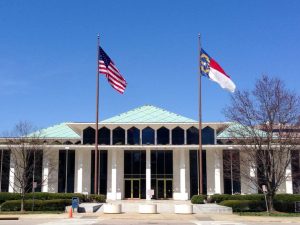 Republican legislative leaders in North Carolina are considering coming back to Raleigh to rewrite two ballot questions because a court blocked them from being voted on in November.
Republican legislative leaders in North Carolina are considering coming back to Raleigh to rewrite two ballot questions because a court blocked them from being voted on in November.
Gov. Roy Cooper and the NAACP took issue with the ballot language, and the court ruled in their favor, agreeing the language was unclear.
Legislative leaders, among others in the case, have filed appeals motions.
August 23, 2018 •
Los Angeles Ethics Commission Delays Developer Pay-to-Play Decision
The Los Angeles City Ethics Commission deferred a decision on a bill to ban political donations from real estate developers. Rather than vote down the proposal, commissioners plan to define the scope of coverage for individuals seeking council approval for […]
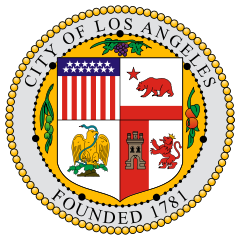 The Los Angeles City Ethics Commission deferred a decision on a bill to ban political donations from real estate developers.
The Los Angeles City Ethics Commission deferred a decision on a bill to ban political donations from real estate developers.
Rather than vote down the proposal, commissioners plan to define the scope of coverage for individuals seeking council approval for new developments. They may also choose to explore an alternative option.
They could require elected officials to recuse themselves from development proposal decisions if they have received contributions from the involved developers.
Commission President Serena Oberstein is concerned a ban on developer contributions would lead to money being funneled through independent expenditure committees.
She also questions whether direct contributions actually lead to corruption.
The Massachusetts Office of Campaign and Political Finance has issued an emergency regulation requiring independent expenditure disclosure prior to the primary election on September 4. “Due to the Labor Day holiday on Sept. 3, the statute would not require independent […]
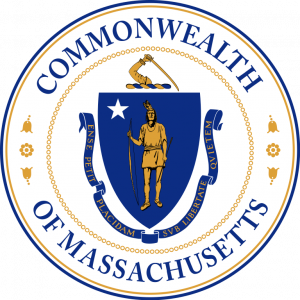 The Massachusetts Office of Campaign and Political Finance has issued an emergency regulation requiring independent expenditure disclosure prior to the primary election on September 4.
The Massachusetts Office of Campaign and Political Finance has issued an emergency regulation requiring independent expenditure disclosure prior to the primary election on September 4.
“Due to the Labor Day holiday on Sept. 3, the statute would not require independent expenditures made on Aug. 23, 24 and 25 to be disclosed prior to the Sept. 4 primary election. However, independent expenditures made between Aug. 26 and Sept. 2 would be disclosed before the election.”
This emergency regulation will eliminate the gap in disclosure, and now independent expenditures must be disclosed within 24 hours if they are utilized on August 23, 24, or 25.
August 21, 2018 •
Montana Contribution Limits Head to U.S. Supreme Court
Attorney James Bopp, Jr. has asked the U.S. Supreme Court to strike down Montana’s contribution limits, arguing they are an unconstitutional limit on free speech. Bopp was an attorney in the well-known Citizens United case, which led to the U.S. […]
 Attorney James Bopp, Jr. has asked the U.S. Supreme Court to strike down Montana’s contribution limits, arguing they are an unconstitutional limit on free speech.
Attorney James Bopp, Jr. has asked the U.S. Supreme Court to strike down Montana’s contribution limits, arguing they are an unconstitutional limit on free speech.
Bopp was an attorney in the well-known Citizens United case, which led to the U.S. Supreme Court ruling corporations cannot be prohibited from spending on elections.
Montana’s limits were struck down in 2012 and again in 2015, but the 9th U.S. Circuit Court of Appeals ruled last October the limits are constitutional.
The U.S. Supreme Court has not yet said if it will take up the case.
August 21, 2018 •
N.Y. Gov. Signs Placement Agent Ban into Law
Gov. Andrew Cuomo signed Assembly Bill 3137 into law on August 21, 2018. The bill bans the use of placement agents by the New York State Common Retirement Fund. The bill codifies existing policies into law, as the State Comptroller […]
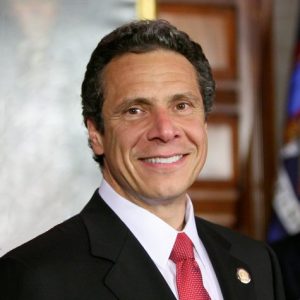 Gov. Andrew Cuomo signed Assembly Bill 3137 into law on August 21, 2018.
Gov. Andrew Cuomo signed Assembly Bill 3137 into law on August 21, 2018.
The bill bans the use of placement agents by the New York State Common Retirement Fund.
The bill codifies existing policies into law, as the State Comptroller Thomas DiNapoli banned the use of placement agents in 2009.
August 21, 2018 •
Sen. Warren Introducing Comprehensive Lobbying and Ethics Bill
On August 21, Sen. Elizabeth Warren is introducing a 289-page bill with various changes to federal lobbying and ethics laws. Among the changes included in the “Anti-Corruption and Public Integrity Act” are an expanded definition of “lobbyist”. The new definition […]
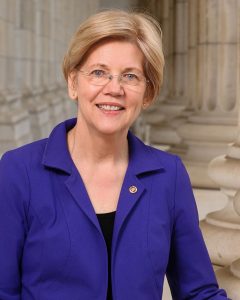 On August 21, Sen. Elizabeth Warren is introducing a 289-page bill with various changes to federal lobbying and ethics laws.
On August 21, Sen. Elizabeth Warren is introducing a 289-page bill with various changes to federal lobbying and ethics laws.
Among the changes included in the “Anti-Corruption and Public Integrity Act” are an expanded definition of “lobbyist”. The new definition covers individuals employed for compensation making at least one lobbying contact or engaging in lobbying activities that do not include making lobbying contacts. The bill creates the definition of “corporate lobbyist”, which are lobbyists compensated by for-profit entities and 501(c)(6) organizations like chambers of commerce, but does not include other 501(c) entities or political organizations.
Reporting by lobbyists would expanded to include disclosure of specific bills, policies, and governmental actions attempted to be influenced, meetings with public officials and documents provided to those officials.
The bill permanently bans all foreign lobbying by both foreign actors and American lobbyists. American lobbyists would be prohibited from accepting money from foreign governments, foreign individuals, and foreign companies to influence United States public policy.
Other changes include a life-time ban on lobbying by former presidents, vice presidents, cabinet secretaries, members of Congress, and federal judges. All other federal employees would be banned from lobbying their former office, department, agency, or Congress after leaving their position until the end of the Administration, but for no less than two years or at least six years for corporate lobbyists. The bill prohibits companies from immediately hiring senior government officials from an agency or office recently lobbied by that company. The law similarly would prohibit large companies, measured by annual revenue or market capitalization, from hiring former senior government officials for four years after they leave the government.
Additionally, lobbyists would be prohibited from making political contributions to candidates or members of Congress, giving gifts to the executive and legislative branch officials being lobbied, and from working for any contingency fee.
The bill also contains changes to the federal rule-making process, expands the open record laws, creates ethics requirements for the judicial branch, including the Supreme Court, and creates an independent U.S. Office of Public Integrity for enforcement. An additional part of the bill addresses conflict of interest laws for federal office holders and employees, including a ban on stock ownership, while in office or employed, by members of Congress, federal judges, and White House staff and senior agency officials.
Also, the legislation includes the “Presidential Conflicts of Interest Act”, which requires sitting presidents and vice presidents to place conflicted assets into blind trusts to be sold.
August 20, 2018 •
Maine State Representative Resigns
Rep. Dillon Bates resigned today after being accused of manipulating students into sexual relationships while he was a teacher. After learning of the investigation by the Portland Police Department, Speaker Sara Gideon called for his immediate resignation. Bates denies the […]
 Rep. Dillon Bates resigned today after being accused of manipulating students into sexual relationships while he was a teacher.
Rep. Dillon Bates resigned today after being accused of manipulating students into sexual relationships while he was a teacher.
After learning of the investigation by the Portland Police Department, Speaker Sara Gideon called for his immediate resignation.
Bates denies the allegations and said he resigned because there are few hours of work left as a legislator this year, and he wants to spend this time clearing his name.
State and Federal Communications, Inc. provides research and consulting services for government relations professionals on lobbying laws, procurement lobbying laws, political contribution laws in the United States and Canada. Learn more by visiting stateandfed.com.

